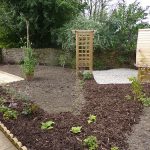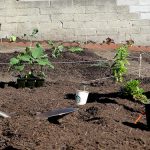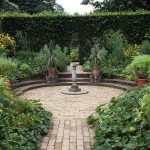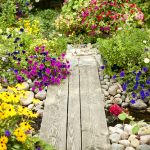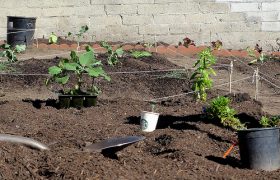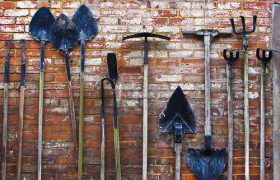Protect the soil around your vegetable plants with an inch or two of organic mulch. Mulch will retain water so that you won’t have to water your plants as often. It can also prevent weeds from growing. This will save you having to constantly pull weeds.
To conserve water when you’re gardening, be sure to use three inches of organic mulch. The mulch will help your plants to absorb the water slowly over time, allowing you to use less water than you normally would. Many natural materials make great mulch, including pine needles and many types of leaves.
To help spread mulch easily, you can use a flat-head rake or a bow. If you are using a rake, you should use the rakes tined edge to pull and spread your mulch. Use the flat side of the rake to even your mulch on the bed. You will want to use a light push then pull action.
Overall, a layer of mulch is beneficial for the soil. Mulch will protect the soil it covers. It protects the plant roots, keeping the ground cool on a hot summer day. Mulch acts like a barrier that ultimately decreases the rate of evaporation. It also keeps the weeds under control.
Use water efficiently as possible. One of the most precious resources in the world today is fresh water. It just cannot be wasted, so the use of mulch and soaker hoses are an efficient way to minimize the impact of the garden on the water supply. Consider having a rain barrel near the garden to capture and save rainwater for a minimal impact garden.
Improve the health of your soil before your plant your crops and seed. Three or four weeks beforehand use organic compounds like mulch, fertilizer, and compost to increase the nutrient value and retention of your soil. It will also improve the retention of water, create a soil buffer, and more.
Don’t plant your seedlings or young plants too deeply. The top of a root ball of a large shrub or tree seedling should be just above the soil level, and then covered up with mulch to protect it. This allows the roots to breathe and keeps the tree or shrub healthy.
Cover bare spots when you plant. When you put a new plant into your organic garden, do not leave the earth bare where you planted. Make sure you mulch the area all around your new plant. This will protect it while it begins to grow. This will also keep the ground moist.

